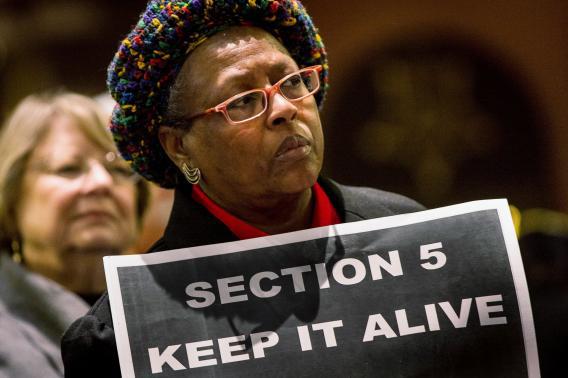Here’s the tl;dr version of the Supreme Court’s ruling on the Voting Rights Act this morning: The court struck down Section 4 of the VRA, which required certain states and jurisdictions to go through federal screening, or “pre-clearance,” before changing their voting laws to ensure they didn’t discriminate against minority voters. Now, the burden is on individual voters to prove they were discriminated against, rather than on the select jurisdictions included in Section 4 to prove they aren’t discriminatory.
As Colorlines points out, many of the Southern states under the VRA are pushing voter ID laws and curtailing early voting—two measures that many say unfairly target minority voters. Of Virginia, Alabama, Mississippi, and North Carolina, one black candidate—former Virginia Gov. Douglas Wilder, elected in 1989—has won statewide election.
Chief Justice John Roberts has punted the issue to Congress, saying it should update the pre-clearance formula to include other areas that may violate the VRA. That much makes sense, as many Northern states that aren’t covered by Section 5—e.g., Wisconsin, Ohio, and Pennsylvania—have passed or are pushing stricter voter ID laws. So think about it this way: The Supreme Court isn’t making it harder for Democrats and minorities in Southern states to get elected. It’s just evening the playing field with conservative Yanks!
